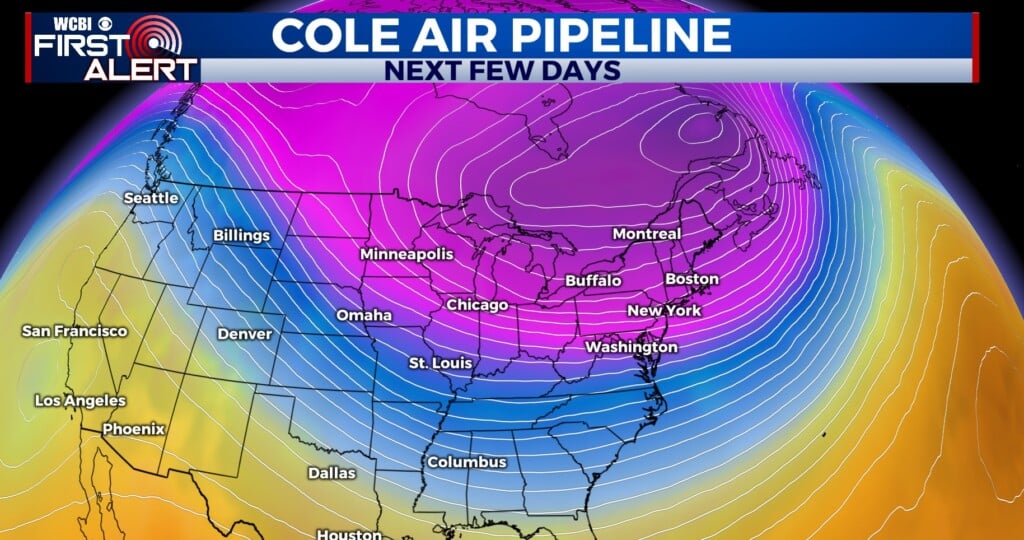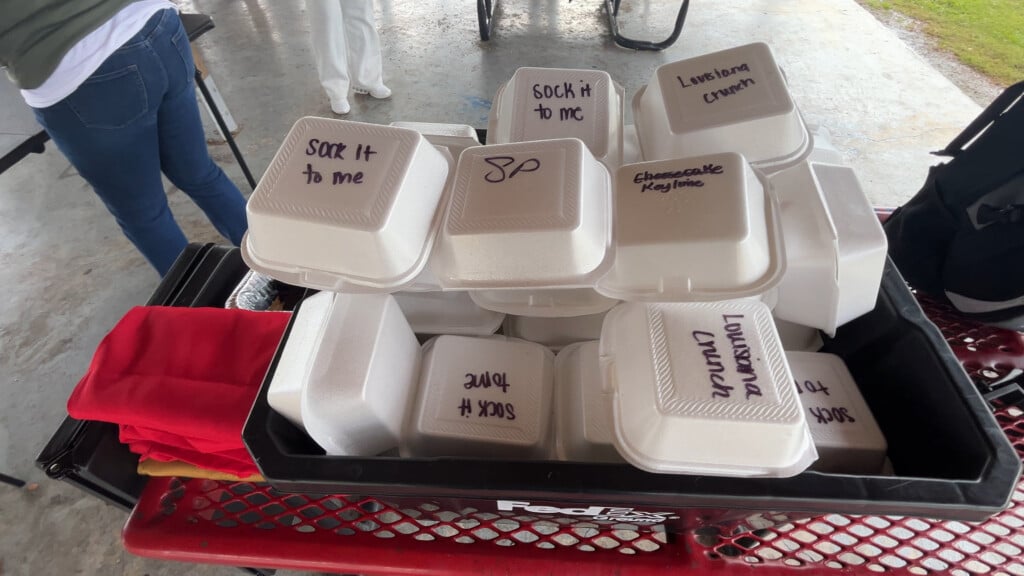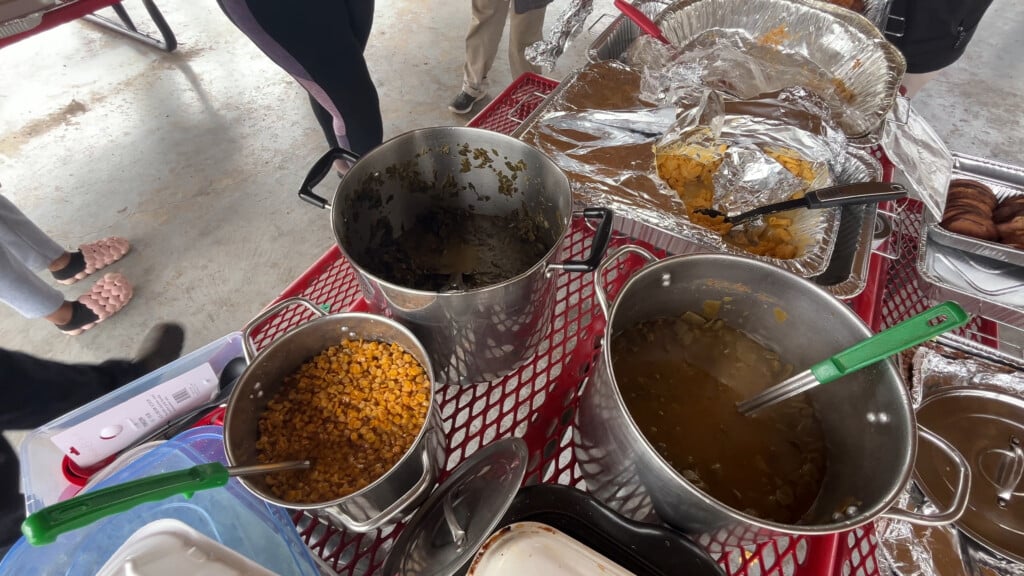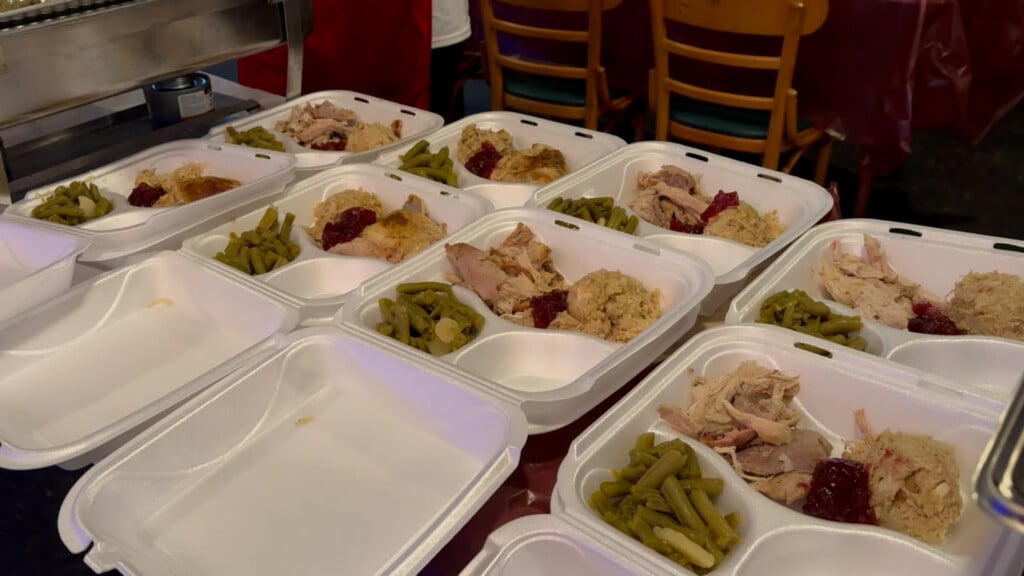2020 Daily Trail Markers: Majority of Americans think coronavirus response is going badly
Most Americans continue to think the battle against the coronavirus outbreak is going badly, and few would feel comfortable being out in crowded spaces now according to a new CBS News poll released Friday. There’s a collective uncertainty about where things are headed next, since just as many think things will get better as get worse, but that nonetheless reflects more optimism than Americans had last week, when their outlook was even more dire.
Views on President Trump’s handling of the outbreak response have ticked down for the second consecutive week. The president is seen doing a good job by 47%, down four points from 51% last week and 53% the prior week. Now is the first time more say he’s doing a bad job than a good one.
A second CBS News poll released Friday shows Americans have an increasingly negative view of the economy’s financial health, and their prognosis for it is not upbeat: only a third expect this downturn to be temporary. And as often happens, many are interpreting the nation’s economic fate through their own experience. Those most concerned about losing work, including those who already have, are the most likely to say the U.S. is headed for a recession, or even depression.
But Americans also know the nation’s economic health is tied to how it manages the coronavirus. If people think the coronavirus outbreak will get better next month, they’re most likely to think the economic downturn will be temporary. For those who fear the outbreak will get worse next month, the economy overwhelmingly looks to them like it’s at least headed for recession.
*Reporting by Anthony Salvanto, Jen De Pinto, Kabir Khanna & Fred Backus
FROM THE CANDIDATES
PRESIDENT TRUMP
Amid rising xenophobia and discrimination targeting Asian-Americans following the COVID-19 outbreak, President Trump’s re-election campaign is facing backlash from a new campaign attack ad launched Thursday that describes Joe Biden as “soft on China.” Sandwiched between montaged clips of the former vice president praising Chinese leaders, including President Xi Jinping, the attack ad features an image of Asian-American Governor Gary Locke, the former chief executive of Washington State, Commerce Secretary and ambassador to China under the Obama administration. CBS News campaign reporter Nicole Sganga says the image appears to be taken from a 2013 business leader breakfast in Beijing. “During America’s crisis, Biden protected China’s feelings,” the 30-second spot reads in part. A spokesman for the Biden campaign called the digital ad “repulsive.” In a tweet, National Press Secretary TJ Ducklo wrote the Trump campaign “should apologize to Governor Locke, and take this ad down immediately.”
The Trump campaign deflected criticism on Twitter, saying the image was taken during “the Hunter Biden trip,” when Biden was accompanied by his son on an official visit. “The shot with the flags specifically places Biden in Beijing in 2013. It’s for a reason. That’s the Hunter Biden trip. Memory Lane for ol’ Joe,” Trump campaign communications director Tim Murtagh tweeted. The campaign’s response does not address Locke’s role, nor the fact that he is an American. Former democratic presidential candidate Andrew Yang, a Taiwanese-American entrepreneur contributing to economic relief in the wake of the coronavirus also responded to the video. Calling it “infuriating,” Yang tweeted, “Gary Locke is as American as the day is long.”
CAMPAIGN CASH
Down-ballot candidates walk a fine line raising cash during a pandemic
As states institute stay-at-home orders advising residents to remain indoors, it’s a challenging time to run a campaign. It’s a particularly difficult time to ask voters–and even supporters–for cash to help fuel the operation. In three weeks, more than 16 million U.S. workers filed for unemployment benefits as efforts to stop the spread of coronavirus shut down businesses across the country. With so many people hurting and unsure what the future holds, candidates are faced with a conundrum.
“How do you ask someone to give money to a campaign right now?” posed Charleston County Democratic Party chair Colleen Condon. “I don’t know how you do it. I don’t know how anybody does it.”
It’s a question that candidates and supporting organizations are grappling with all across the United States, report CBS News political unit associate producers Sarah Ewall-Wice and Eleanor Watson, CBS News campaign reporter LaCrai Mitchell, and CBS News political unit broadcast associate Aaron Navarro. Many struggle with asking for cash even in the best of times, but experts note, for better or worse, money is still what makes the rest of campaign efforts possible, so it is now about striking a delicate balance.
“On fundraising, it’s definitely a huge challenge, especially for down-ballot candidates who don’t have as big of a network to work with,” said Ianthe Metzger, Deputy Director of Campaign Communications for Emily’s List which works with progressive women candidates. “If we do get back to normal in a few months, candidates are going to need the resources to get them over the finish line, so we’re not telling them to stop fundraising, just to kind of really talk to people,” she adds.
LIFE AFTER 2020
ELIZABETH WARREN & KAMALA HARRIS
Senators Elizabeth Warren and Kamala Harris on Friday introduced a bill that would federally ban price gouging of consumer goods during national emergencies such as the COVID-19 pandemic. CBS News campaign reporter Zak Hudak says the bill is the Senate companion to one introduced in the House Wednesday that’s modeled off a California law against rising the price of certain goods over 10% after a statewide emergency has been declared. The federal bill would allow the FTC to enforce compliance with a ban on any price increases deemed excessive or opportunistic. “This bill would protect consumers now and during any future crisis by setting tougher rules of the road and enhancing enforcement against predatory price gouging — and it needs to be included in Congress’s next relief package,” Warren said in a statement.
ISSUES THAT MATTER
VOTING RIGHTS
The November presidential election is more than six months away, but officials from both parties are already sounding the alarm about the need for more resources to ensure health safety and expand alternatives to in-person and day-of voting, report CBS News campaign reporters Musadiq Bidar, Adam Brewster, political unit associate producer Sarah Ewall-Wice and CBSN political reporter Caitlin Huey-Burns. And while some states are taking the lead in expanding vote-by-mail options, a protracted partisan fight over what the general election could and should look like in the age of Coronavirus is underway. There are several challenges, including the need for more resources to build the needed infrastructure, as the clock continues to tick. Polling shows that voters are also thinking ahead about the impact the virus could have on elections. A new Reuters/Ipsos survey found 72% of all U.S. adults support requirements for mail-in ballots as a way to protect voters should the virus continue to spread, including 79% of Democrats and 65% of Republicans. Four states already conduct their general elections by mail, and Hawaii is set to become the fifth state to join this year. Another 28 states and Washington D.C. offer “no-excuse” absentee or mail voting but now Democrats are pushing for it to be implemented nationwide.
The newly-passed stimulus package allocated $400 million to help secure elections, but Democratic leaders in Congress are pushing for additional funds. The Brennan Center estimates that ensuring a vote-by-mail option in all states would cost at least $1.4 billion, which would include ballot printing, postage costs, dropbox security, ballot tracking and processing, staffing, and additional technology. The center also estimates another $270 million would be necessary to ensure the safety of in-person voting and expand early voting. For Republicans at the national level, Mr. Trump is leading the charge against expanded vote by mail. “People cheat,” Mr. Trump said at his daily briefing on Tuesday, though he, too, voted absentee by mail in Florida’s primary last month. “The mail ballots are corrupt in my opinion. They collect them, go out and get people to sign them, forgeries in many cases.” Mr. Trump argued that his Florida vote last month was different because he was out of the state on Election Day.
There are several challenges to expanding vote-by-mail. For starters, the current timeline is tight. States that already have a system have had one in place for a long period of time. For example, it took Washington several years to put the proper infrastructure in place across the state for vote-by-mail elections. And even states that already have a robust absentee voting system say it will be difficult to scale up in time for November’s election. One difficulty in scaling up involves the fundamental process of printing and mailing ballots. While a nationalized vote-by-mail system isn’t likely to be implemented anytime soon, experts say it is more likely that states move to expand options to augment in-person voting.
GOVERNOR’S MANSION
FOLLOWING ORDERS
“It’s the biggest decision I’ll ever make,” Mr. Trump said Friday about potentially “reopening” the country’s economy by May 1. It’s a decision that ultimately starts with the governors in at least 43 states that have issued statewide lockdowns and closed all non-essential businesses, which Mr. Trump alluded to. “I have great authority if I wanted to use it, I would rather have the states use it,” he said at his Friday press conference. CBS News legal analyst Jonathan Turley previously told CBS News political unit broadcast associate Aaron Navarro that “if a governor has imposed a shelter-in-place order, the president does not have authority to override that order.” Turley doubled down on that analysis on Friday, tweeting “There is a continuing false narrative that Trump can “open” the country by some type of presidential edict. He can’t. What the President can do is advise governors that they can loosen restrictions, particularly in early areas of receded or low rates of virus. That is no small degree of influence but it is a matter of persuasive rather than command authority.”
While several states in the central United States have yet to issue “stay-at-home” orders, both Drs. Anthony Fauci and Deborah Birx, members of the White House Coronavirus Task Force, said those states have still put in effort to prevent any spikes such as contact tracing. “I really want to salute the governors of states… particularly in the central part of the country. If we pull out of this we’re going to pull out of it in the big cities, and we’re going to pull out of it in those areas that aren’t as densely populated,” Fauci said. Fauci added that he’s had calls with the Governors in Arkansas and Wyoming earlier in the day.
Still, Fauci cautioned against a full out “reopening” and said “this is not the time to feel that since we have made such important advance in the sense of success of the mitigation that we need to pull back at all.” But Mr. Trump said he will name a “Reopening Our Country” council onTuesday, and that he would put Democrat and Republican Governors on the council. “I’ve asked a couple of them, so far they’ve all said yes. I think everyone would like to be on that council, it’s a very important council,” he said.





Leave a Reply